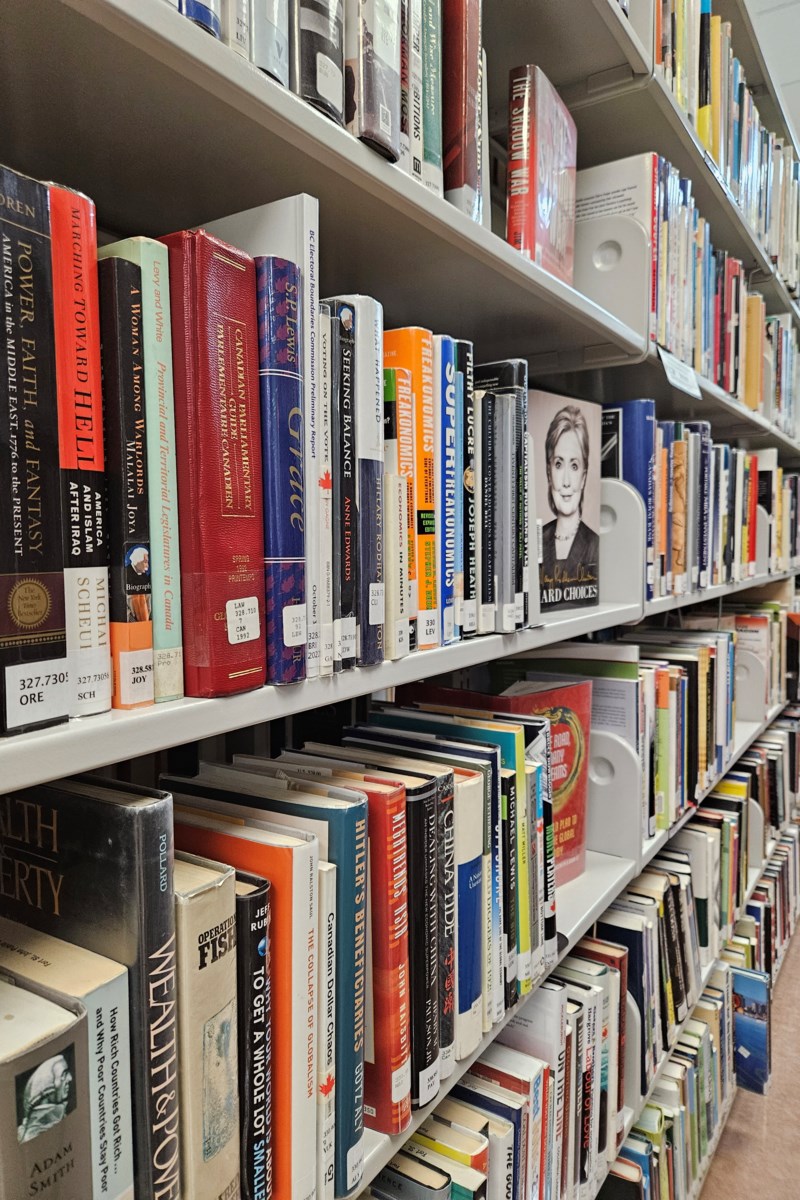Adult literacy programs extended throughout B.C.
Adult literacy programs extended throughout B.C. Alaska Highway News


B.C Invests $3.4 Million Annually in Community Adult Literacy Program

The province of British Columbia (B.C) is committed to supporting the Community Adult Literacy Program (CALP) by investing $3.4 million annually. This funding aims to enhance adult literacy programs throughout B.C, with a focus on achieving the Sustainable Development Goals (SDGs). In the fiscal year 2023-24, the funding will support 102 adult literacy programs delivered by 71 providers across 132 communities in B.C. These programs are projected to benefit over 16,000 individuals in the province. The Ministry of Post-Secondary Education and Future Skills highlights that this year’s investment builds upon the success of last year’s 97 programs in 128 communities.
Improving Literacy for a Better Quality of Life
The Minister of Post-Secondary Education and Future Skills, Selina Robinson, emphasizes the significance of improving literacy and numeracy skills as a crucial step towards enhancing people’s quality of life. By acquiring these skills, individuals can enhance their job and career prospects and thrive in B.C.’s robust and strong economy. The investment in CALP will connect people with the necessary skills to progress in their educational and career journeys.
Community-Based Adult Literacy Programs
The CALP consists of community-based adult, indigenous, and family literacy programs. These programs are delivered by trained volunteers who provide one-on-one tutoring and small-group classes. The focus is on building skills in basic literacy, numeracy, employment preparation, and life skills. By targeting these areas, CALP aims to empower individuals and contribute to the achievement of SDGs.
Creating Brighter Futures and Resilient Communities
Sandra Lee, the executive director of Decoda Literacy Solutions, highlights the positive impact of increasing literacy and essential skills among adults. Individuals who improve their literacy skills have access to more job opportunities, are more likely to continue their education, and experience better health outcomes. This, in turn, contributes to the creation of brighter futures and resilient communities. Decoda is proud to collaborate with the Ministry of Post-Secondary Education and Future Skills to support CALP across the province. The funding received enables Decoda to provide training, professional development, and resources for adult literacy providers in over 100 communities.
The Need for Improved Literacy Skills
According to the Ministry of Secondary Education and Future Skills, a significant portion of British Columbians face challenges in understanding newspapers, reading health information, following instruction manuals, and performing other daily tasks. Approximately 45 percent of individuals aged 16 to 65 may have difficulty with these tasks. Additionally, 52 percent of individuals in the same age group may struggle with tasks such as calculating interest on a car loan, determining medicine dosage, interpreting information on a graph, and other daily living tasks. These statistics highlight the importance of investing in adult literacy programs to address these challenges.
Empowering Individuals for a Stronger Society
Desneiges Profili, the executive director of the Columbia Basin Alliance for Literacy (CBAL), emphasizes that strong literacy skills empower individuals to advocate for themselves and make informed decisions for their families. Individuals with enhanced literacy skills have greater earning potential and become engaged community members. CBAL welcomes thousands of learners each year, and the funding provided through CALP is essential to ensure community members receive the support they need to not only survive but thrive in today’s changing world.
Subscribe to our newsletter to receive news six days a week: subscribe to our newsletter.
Contact: tbuck@ahnfsj.ca
SDGs, Targets, and Indicators
| SDGs | Targets | Indicators |
|---|---|---|
| SDG 4: Quality Education | 4.6: By 2030, ensure that all youth and a substantial proportion of adults, both men and women, achieve literacy and numeracy. | Number of adult literacy programs supported by the Community Adult Literacy Program (CALP) in British Columbia. |
| SDG 8: Decent Work and Economic Growth | 8.6: By 2020, substantially reduce the proportion of youth not in employment, education or training. | Number of individuals supported by the CALP programs in gaining job and career prospects. |
| SDG 10: Reduced Inequalities | 10.7: Facilitate orderly, safe, regular and responsible migration and mobility of people, including through the implementation of planned and well-managed migration policies. | Number of individuals from diverse communities supported by the CALP programs. |
| SDG 17: Partnerships for the Goals | 17.9: Enhance international support for implementing effective and targeted capacity-building in developing countries to support national plans to implement all the Sustainable Development Goals. | Collaboration between the Ministry of Post-Secondary Education and Future Skills, Decoda Literacy Solutions, and other literacy providers in delivering the CALP programs. |
1. Which SDGs are addressed or connected to the issues highlighted in the article?
- SDG 4: Quality Education
- SDG 8: Decent Work and Economic Growth
- SDG 10: Reduced Inequalities
- SDG 17: Partnerships for the Goals
The article addresses issues related to adult literacy programs, which are connected to the goals of quality education, decent work and economic growth, reduced inequalities, and partnerships for the goals.
2. What specific targets under those SDGs can be identified based on the article’s content?
- Target 4.6: By 2030, ensure that all youth and a substantial proportion of adults, both men and women, achieve literacy and numeracy.
- Target 8.6: By 2020, substantially reduce the proportion of youth not in employment, education or training.
- Target 10.7: Facilitate orderly, safe, regular and responsible migration and mobility of people, including through the implementation of planned and well-managed migration policies.
- Target 17.9: Enhance international support for implementing effective and targeted capacity-building in developing countries to support national plans to implement all the Sustainable Development Goals.
The article highlights the importance of improving literacy and numeracy skills for adults, which aligns with Target 4.6. It also emphasizes the impact of these skills on job and career prospects, connecting to Target 8.6. Additionally, the article mentions community-based programs that support individuals from diverse communities, contributing to Target 10.7. Lastly, the collaboration between different organizations in delivering the adult literacy programs reflects the spirit of Target 17.9.
3. Are there any indicators mentioned or implied in the article that can be used to measure progress towards the identified targets?
- Number of adult literacy programs supported by the Community Adult Literacy Program (CALP) in British Columbia.
- Number of individuals supported by the CALP programs in gaining job and career prospects.
- Number of individuals from diverse communities supported by the CALP programs.
- Collaboration between the Ministry of Post-Secondary Education and Future Skills, Decoda Literacy Solutions, and other literacy providers in delivering the CALP programs.
The article mentions that the funding provided will support 102 adult literacy programs delivered by 71 providers in 132 communities throughout British Columbia, indicating the number of programs supported. It also highlights the impact of these programs on job and career prospects, suggesting that the number of individuals benefiting from them can be used as an indicator. Additionally, the article emphasizes the importance of supporting individuals from diverse communities, implying that tracking the number of individuals from these communities who receive support can be an indicator. Lastly, the collaboration between different organizations involved in delivering the CALP programs can be seen as an indicator of progress towards Target 17.9.
4. SDGs, Targets, and Indicators
| SDGs | Targets | Indicators |
|---|---|---|
| SDG 4: Quality Education | 4.6: By 2030, ensure that all youth and a substantial proportion of adults, both men and women, achieve literacy and numeracy. | Number of adult literacy programs supported by the Community Adult Literacy Program (CALP) in British Columbia. |
| SDG 8: Decent Work and Economic Growth | 8.6: By 2020, substantially reduce the proportion of youth not in employment, education or training. | Number of individuals supported by the CALP programs in gaining job and career prospects. |
| SDG 10: Reduced Inequalities | 10.7: Facilitate orderly, safe, regular and responsible migration and mobility of people, including through the implementation of planned and well-managed migration policies. | Number of individuals from diverse communities supported by the CALP programs. |
| SDG 17: Partnerships for the Goals | 17.9: Enhance international support for implementing effective and targeted capacity-building in developing countries to support national plans to implement all the Sustainable Development Goals. | Collaboration between the Ministry of Post-Secondary Education and Future Skills, Decoda Literacy Solutions, and other literacy providers in delivering the CALP programs. |
Behold! This splendid article springs forth from the wellspring of knowledge, shaped by a wondrous proprietary AI technology that delved into a vast ocean of data, illuminating the path towards the Sustainable Development Goals. Remember that all rights are reserved by SDG Investors LLC, empowering us to champion progress together.
Source: alaskahighwaynews.ca

Join us, as fellow seekers of change, on a transformative journey at https://sdgtalks.ai/welcome, where you can become a member and actively contribute to shaping a brighter future.







